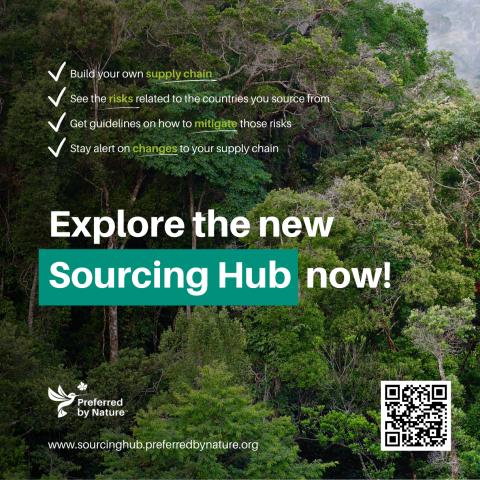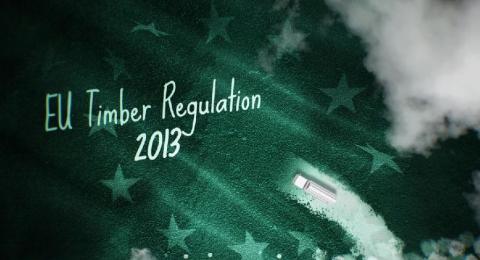Ukraine invasion: A third of the world’s sustainable timber banned or sanctioned
The EU ban on timber exports from Russia and Belarus is a severe blow to the global market for sustainable timber and biomass. Businesses and governments will face significant challenges, says Peter Feilberg, Executive Director at Preferred by Nature.
Legal measures introduced by the EU to put pressure on Russia and Belarus over the Ukraine invasion are being felt on the global market for certified and sustainable timber, timber products and biomass.
With a ban already in place targeting timber imports from Belarus and concerns about how the armed conflict in Ukraine will impact the flow of products from there, the EU has now adopted a fifth round of sanctions, expanding the ban to include wood sourced in Russia.
“Our dependence on certified timber and certified timber products such as pulp, paper and biomass has grown deep roots over the last ten years. Ukraine, Russia and Belarus account for around 35 percent of the World’s FSC certified forest and their exports of sustainable timber and biomass play a crucial role on the global markets for sustainable timber products,” said Peter Feilberg, Executive Director at Preferred by Nature.
Russia recently overtook Canada as the world’s largest exporter of soft wood timber and in 2021 the export of timber and timber products from the Russian Federation had a total value of 13.9 USD billion.
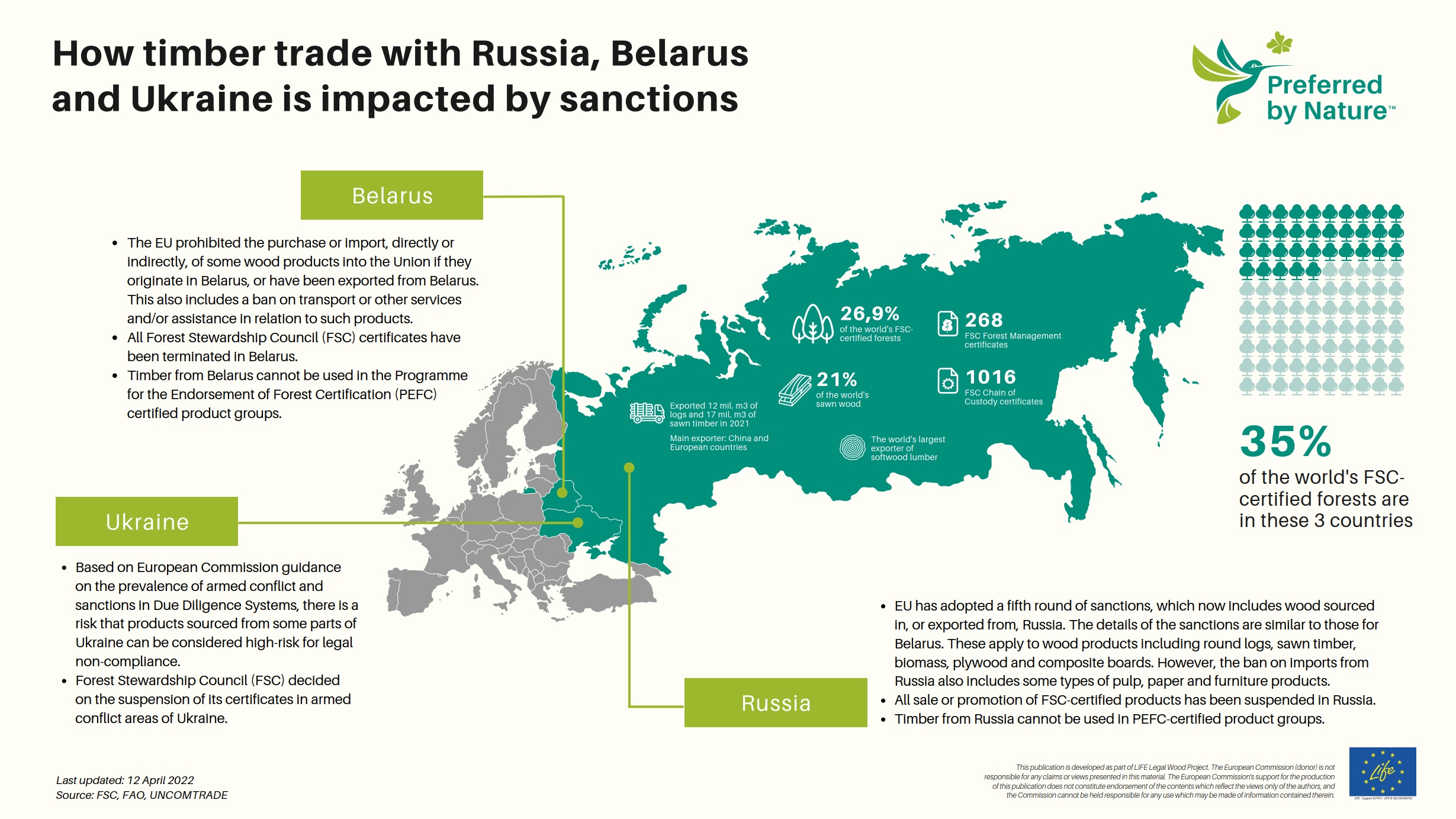
Ecolabels suspend trade
Leading sustainability standards have also reacted to the events unfolding in Ukraine.
Within the last decade, nearly 12 percent of the World’s Forest cover has been certified with sustainable standards such as the Forest Stewardship Council (FSC) and the Programme for the Endorsement of Forest Certification (PEFC). Both standards have now suspended all trade of certified wood from Belarus and Russia.
In addition, the World’s leading sustainable biomass standard, The Sustainable Biomass Programme (SBP), has also stopped all trade with Russia and Belarus, which holds around one third of all SBP certificates.
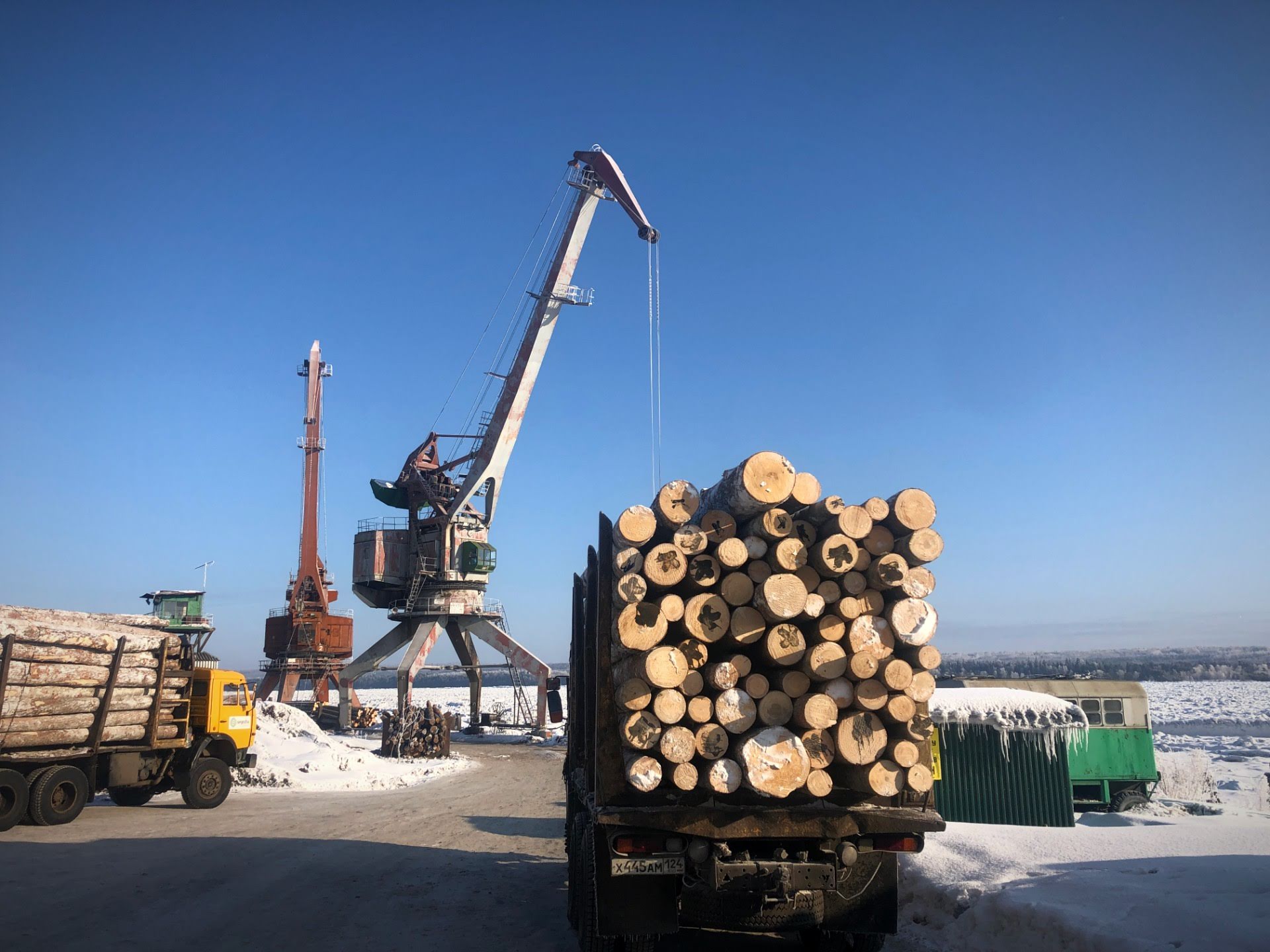
EU ban on Belarus and Russia
Growing awareness of deforestation, climate change and increasing consumer demand has spurred rapid growth in the sustainable forestry sector and Russia has taken the lead as the country with most certified forest. Both Belarus and Ukraine have seen similar growth rates.
The bans now introduced by the EU are extensive. They include both direct and indirect import, transport of wood originating in the banned countries, and technical and financial services relating to the prohibitions.
"One third of all Russian timber is exported to China. A significant share of this will be processed and sold on to the European market. Controlling whether any of these products coming from China includes wood that has been harvested in Russia, will clearly be a challenge to the EU," said Peter Feilberg.
Russian occupied areas of Ukraine are also facing bans. The EU Commission is advising that products sourced from some parts of Ukraine can be considered high-risk for legal non-compliance, and a trade ban implemented by the Council of the EU on products from Crimea or Sevastopol has existed since 2014.
Many EU-based companies have developed significant supply relationships with Russia and Belarus and will face a difficult task in finding alternatives. As part of their green transitioning, several countries such as the Netherlands, Belgium, the United Kingdom and Denmark have also grown dependent on the supply of Russian certified biomass. Peter Feilberg fears this may result in the roll back of green policies and regulations, which have been years in the making.
"Unfortunately, we are already seeing both businesses and governments stepping back on their sustainable commitments,” said Peter Feilberg.
------------------------------------------------------------------------------------- -------------------------------
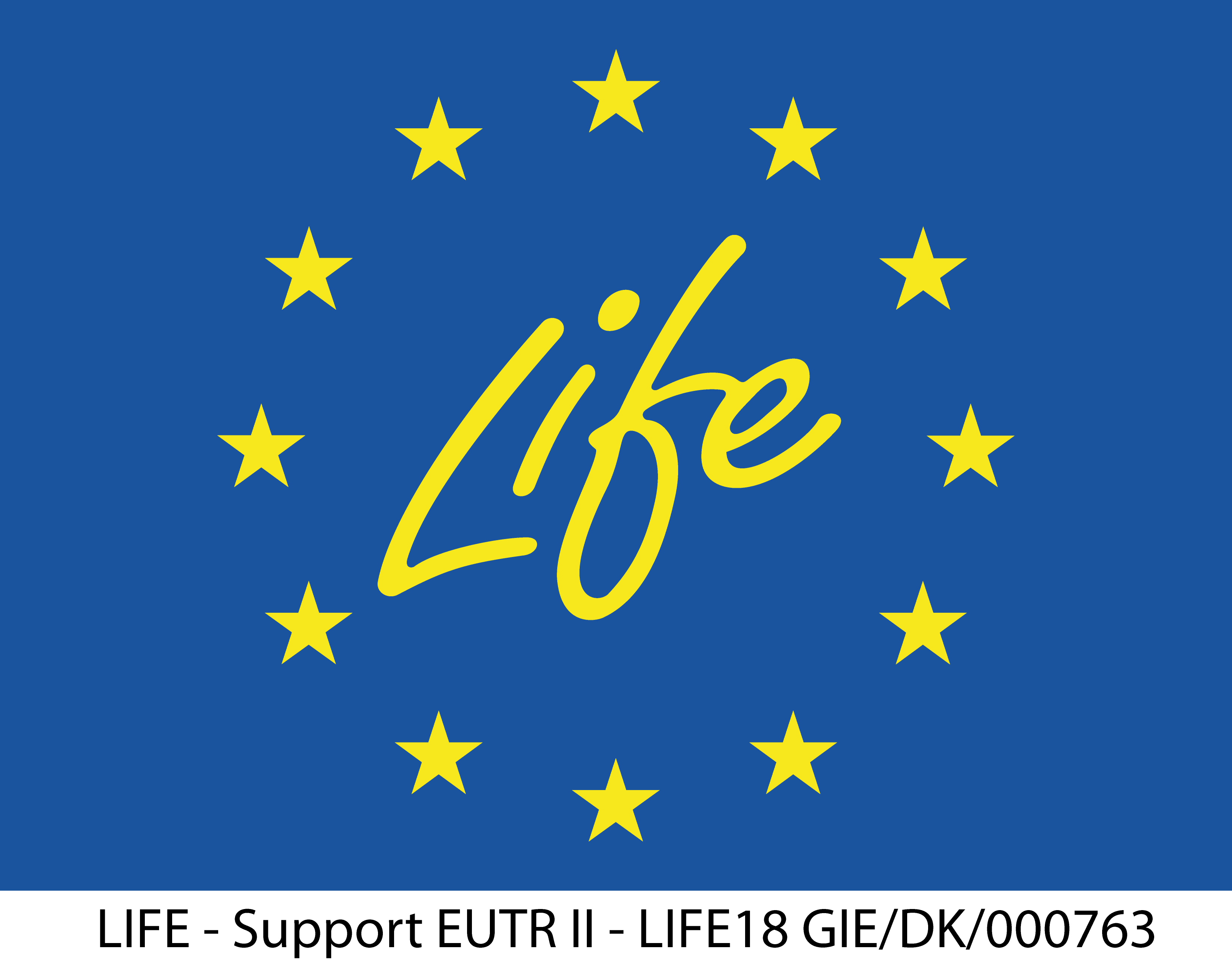 The European Commission (donor) is not responsible for any claims or views presented in this material. The European Commission's support for the production of this publication does not constitute endorsement of the contents which reflect the views only of the authors, and the Commission cannot be held responsible for any use which may be made of information contained therein.
The European Commission (donor) is not responsible for any claims or views presented in this material. The European Commission's support for the production of this publication does not constitute endorsement of the contents which reflect the views only of the authors, and the Commission cannot be held responsible for any use which may be made of information contained therein.

